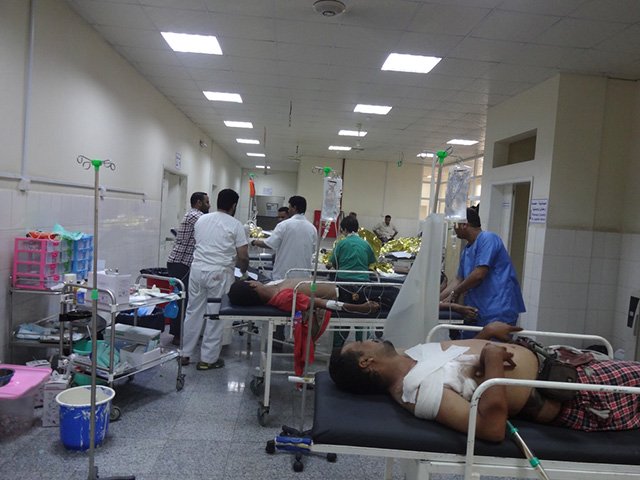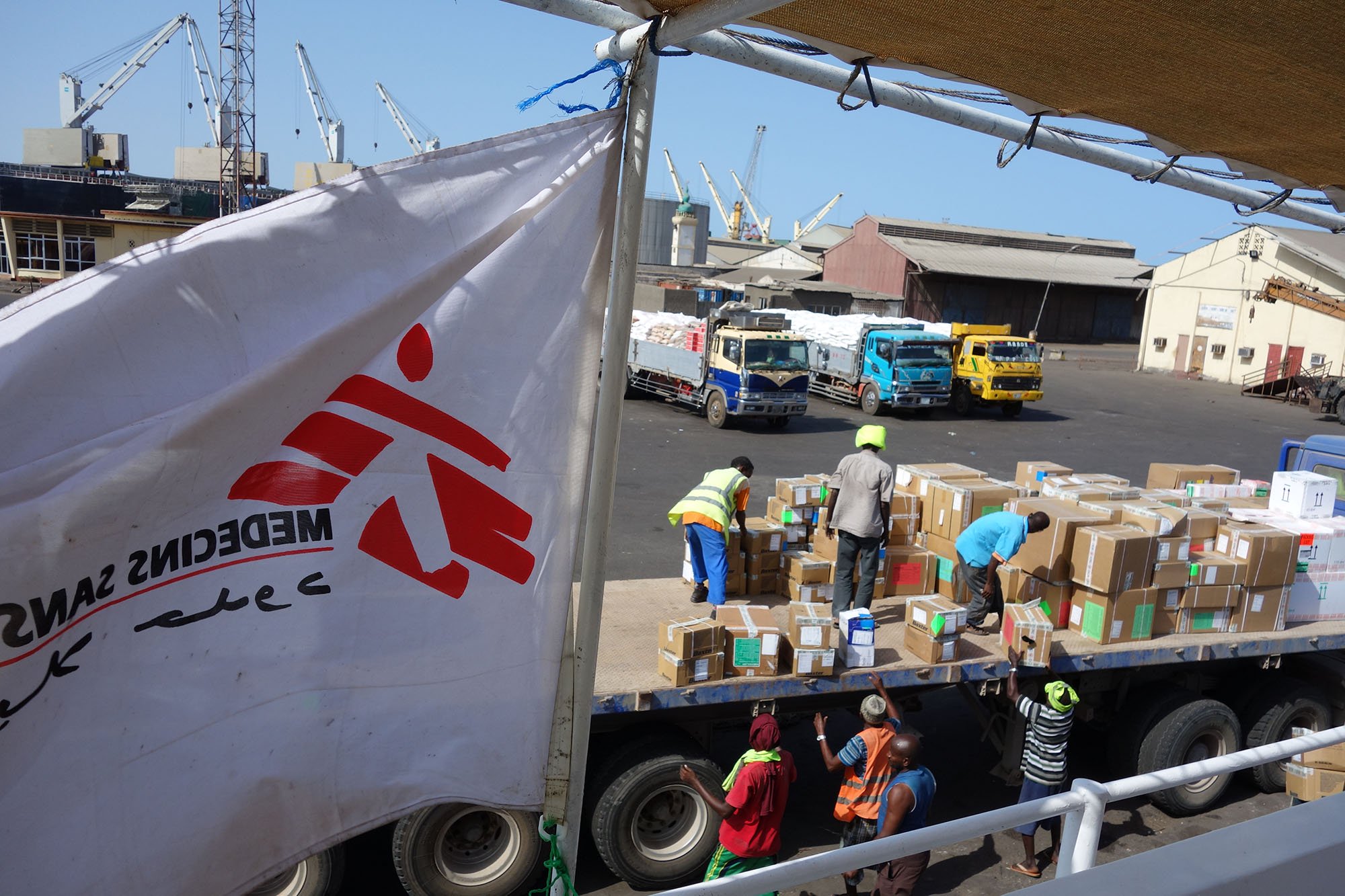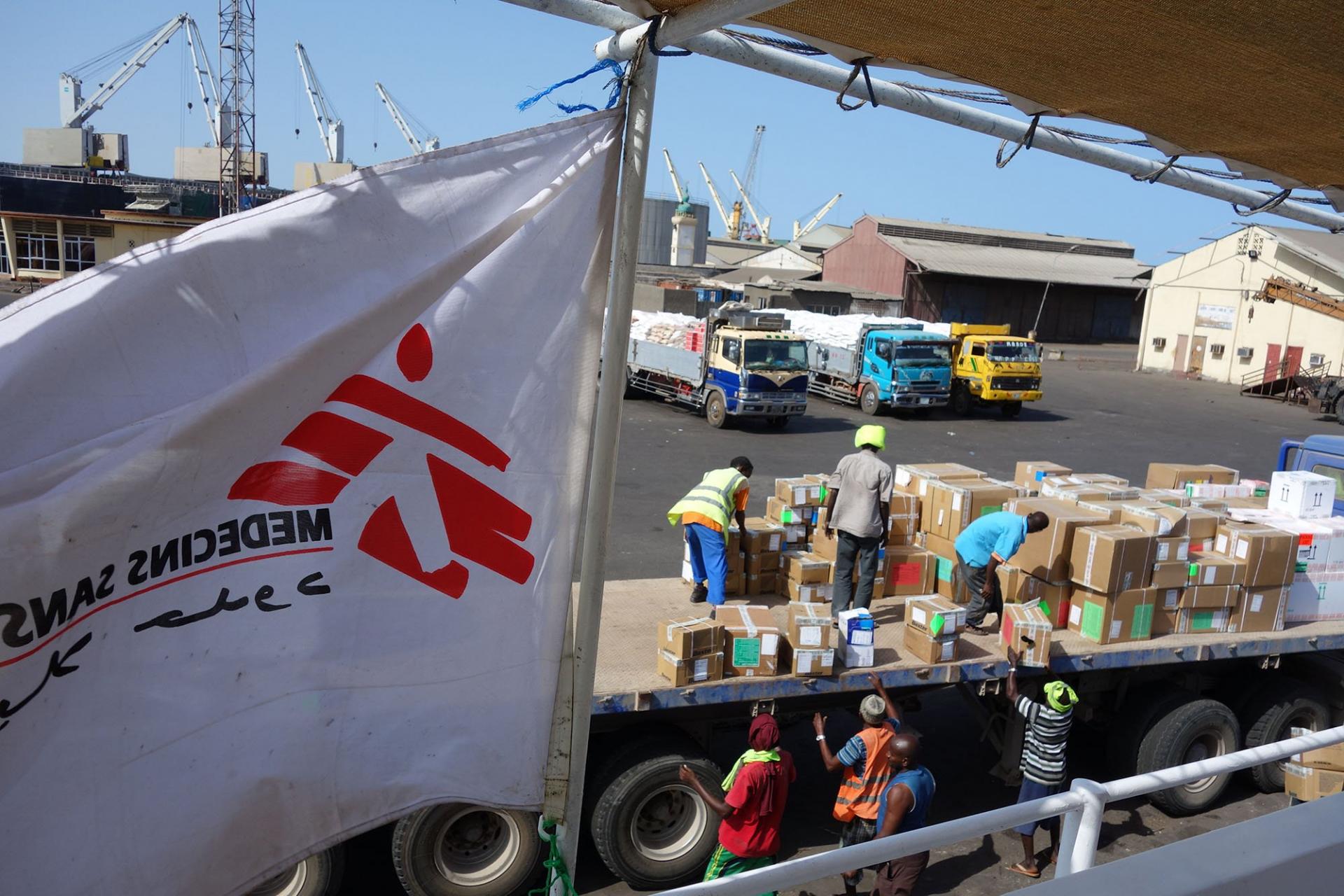Since March 19th, more than 800 war-wounded people have received emergency treatment in Doctors Without Borders (MSF) projects across Yemen.
This number comes despite blocking of major access roads leading to medical facilities, attacks on Ministry of Health ambulances and killing of Red Crescent staff, and scores of injured lying in the street for hours as sniper fire and intense street-to-street fighting prevents help reaching them.

Response centred in the South
More than 600 people have received treatment in the MSF hospital in Aden in the south, where fighting between Houthi forces/forces loyal to Yemeni former President Ali Abdullah Saleh, and groups supporting President Abed Rabbuh Mansur Hadi has centred.
Aerial and naval bombing from a coalition of countries backing Hadi is compounding the dangers facing people from the pitched battles taking place inside the city.
Our staff is responding to repeated mass casualty events in which as many as 100 injured have arrived at the hospital at the same time.
The team in Aden has dealt with several waves of mass casualties in the last three weeks. However, while they received more than 550 injured between March 19 and March 31, less than 100 injured could make it to the hospital in the first week of April despite violence escalating.
More than 150 people have also been treated in two MSF emergency projects in Ad-Dhale governorate, where MSF staff continue to run an ambulance service ferrying wounded across the front line after a brief suspension as security was reassessed.
After a period of calm over the weekend, violence has again increased in the area.
Medical support in the North
MSF also continues supporting the hospital in Haradh town, where 34 injured were taken following an airstrike on Al Mazraq displacement camp on 30th March.
MSF has also successfully flown an additional surgeon into the capital, Sana’a, who has been sent to MSF’s project in the town of Khamer, Amran governorate, to strengthen surgical capacity in the north of the country.
In Sana’a itself MSF is providing supplies to the Al Jumhoori hospital and continues its regular HIV project. More supplies and staff needed urgently
With humanitarian needs escalating rapidly, MSF is working relentlessly to get more medical supplies and staff into Yemen. On Wednesday 8th April, one MSF boat successfully made the crossing from nearby Djibouti to Aden with 1.7 tonnes of supplies to replenish stocks at the MSF Emergency Surgical Unit in Aden.
A second boat, organized by the International Committee of the Red Cross, brought an additional MSF surgical team into the town. The team immediately started working on arrival at the hospital.

“We are pleased that the medical supplies and staff have arrived safely, as the team at the hospital was exhausted, and there was a real risk of supply shortages,” said Marie-Elisabeth Ingres, Head of Mission for MSF in Yemen.
“But with the violence continuing to cause large numbers of injured more supplies and medical staff are needed.”
MSF currently has 558 staff in Yemen. MSF first worked in Yemen in 1986 and has been working continuously in the country since 2007.
MSF currently runs medical projects in Sana’a, Amran, Aden and Ad-Dhale’ governorates in Yemen, and provides medical aid to different parts of the country during emergencies.
Find out more about MSF's work in Yemen.
